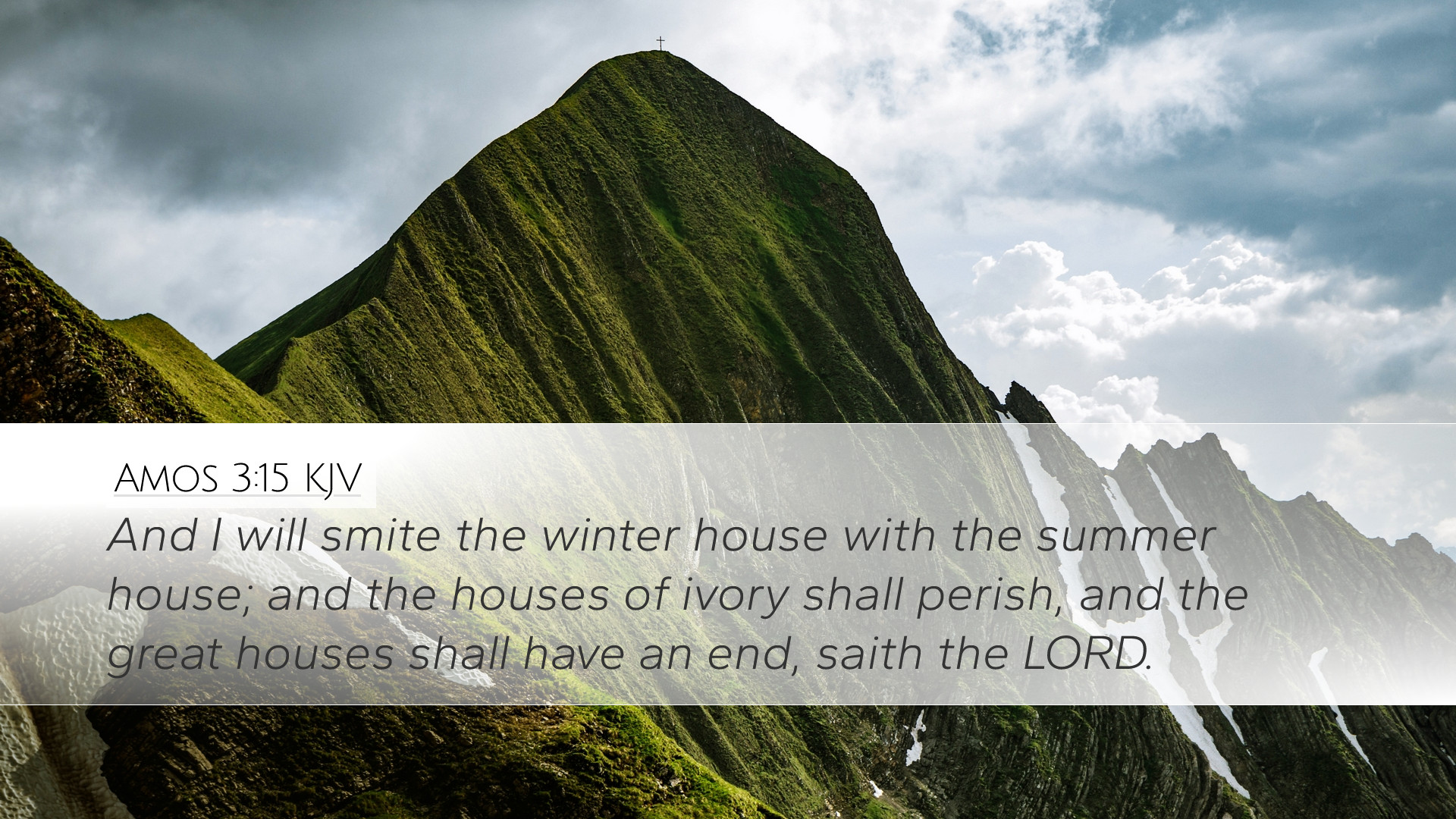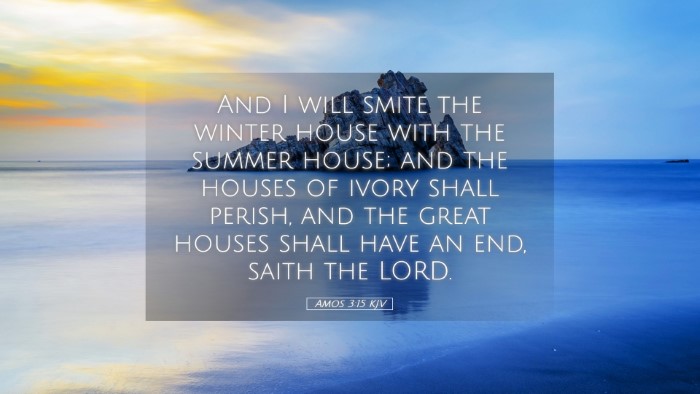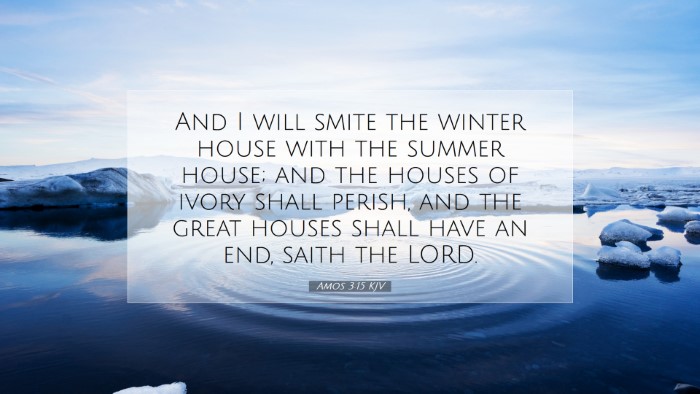Old Testament
Genesis Exodus Leviticus Numbers Deuteronomy Joshua Judges Ruth 1 Samuel 2 Samuel 1 Kings 2 Kings 1 Chronicles 2 Chronicles Ezra Nehemiah Esther Job Psalms Proverbs Ecclesiastes Song of Solomon Isaiah Jeremiah Lamentations Ezekiel Daniel Hosea Joel Amos Obadiah Jonah Micah Nahum Habakkuk Zephaniah Haggai Zechariah MalachiAmos 3:15
Amos 3:15 KJV
And I will smite the winter house with the summer house; and the houses of ivory shall perish, and the great houses shall have an end, saith the LORD.
Amos 3:15 Bible Commentary
Commentary on Amos 3:15
Bible Verse: "And I will smite the winter house with the summer house; and the houses of ivory shall perish, and the great houses shall have an end, saith the Lord."
Introduction
This verse comes from the prophetic words of Amos, a shepherd called by God to deliver a message to Israel during a time of moral decay and social injustice. The verse is a poignant declaration of God's judgment against the opulence of Israel's elite class, emphasizing the temporal nature of earthly comforts and societal structures.
Contextual Background
The book of Amos is set in a period of prosperity for Israel, but this prosperity was marred by widespread injustice. The wealthy were exploiting the poor, and religious practices had become hollow. Amos addresses this decay, warning of impending judgment. Understanding this context is crucial for grasping the gravity of God’s message in Amos 3:15.
Thematic Analysis
The themes present in this verse revolve around divine judgment, the transience of human constructions, and the sovereignty of God.
- Divine Judgment: The phrase "I will smite" is a direct indication of God’s active involvement in human affairs, signifying a judgment that is not merely passive but also corrective.
- Transience of Human Constructs: The reference to the "winter house" and "summer house" reflects the fleeting nature of material possessions and the ephemeral joy they provide. Both houses symbolize the various ways individuals seek comfort and security—yet both will face destruction.
- Sovereignty of God: The affirmation "saith the Lord" underscores God's ultimate authority over judgment and fate, assuring the readers that this message carries divine weight and seriousness.
Insight from Commentaries
Matthew Henry
Matthew Henry emphasizes the idea that God’s judgment will reach even the most opulent and seemingly secure dwellings. His commentary notes that it is not solely the physical destruction that matters, but rather what these houses represent: the pride and complacency of those who have forsaken righteousness in favor of luxury.
Albert Barnes
Albert Barnes offers insight into the metaphor of the winter and summer houses, interpreting them as representative of the lives of the affluent, who mistakenly believe that their wealth can safeguard them from God’s judgment. He notes that this verse serves as a profound reminder of the vulnerability of human wealth and status in the face of divine decree.
Adam Clarke
Adam Clarke expands on the symbolism by suggesting that the "houses of ivory" refer not just to physical homes adorned with luxury but to the lifestyle and the attitudes of the wealthy. Clarke rightly connects the destruction of these houses with the broader theme of social justice; the inviolability of the law secures the poor's rights and fairness against the powerful. Hence, God’s act of judgment signifies not just a physical destruction but a moral reordering.
Application for Today
The message of Amos 3:15 remains relevant for today’s societal and ecclesiastical contexts. It challenges believers to examine their own relationships with wealth and social status, urging a move away from complacency and materialism.
- Self-Examination: Pastors, students, and scholars must consider their own "houses." In what ways do we build our lives on the fragile foundations of wealth, status, or other temporary constructs?
- Call to Justice: The church is called to be a voice for the voiceless, advocating for equity and justice as God demanded through His prophets. This verse is a reminder that the neglect of social justice can lead to communal judgment.
- Temporal vs. Eternal: Emphasizing the transient nature of our earthly possessions can lead Christians to invest more in eternal treasures rather than temporal successes.
Concluding Thoughts
Amos 3:15 serves as a clarion call to the people of God, warning against the false security provided by wealth and societal standing. As we reflect on this verse, let us seek to align our lives with God's will, prioritizing justice, mercy, and humility over material gain.


